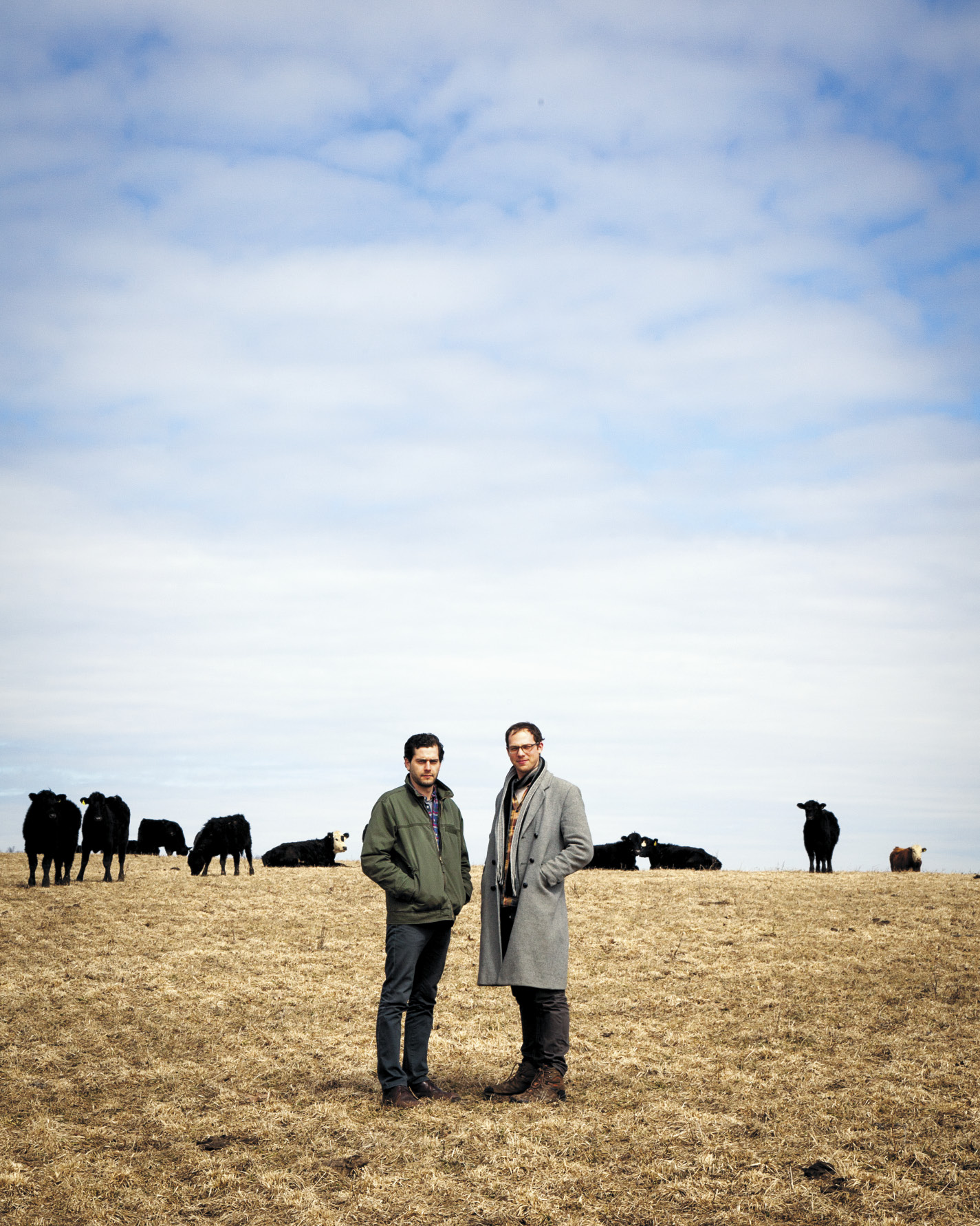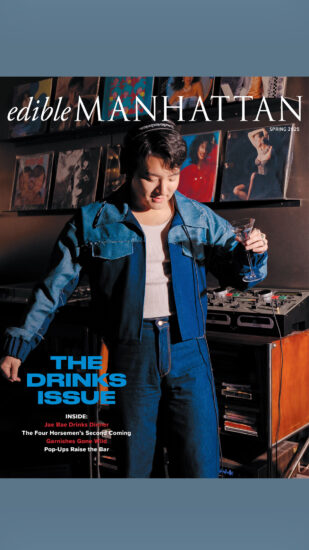
Credit PETA for the new Happy Valley Meat Company. At least partly.
When the two young cofounders of this literal farm-to-plate start-up set out to build a business, they knew the key to connecting chefs to farmers of sustainable beef had to be the slaughterhouse. It’s hard to treat animals humanely, and meat carefully, when thousands of head of beef are processed in a day.
“It’s the choke point on quality control,” says Dan Honig, 24, who earned his master’s at NYU in bioethics. “They’re the eyes and ears on how the meat is handled.”
And who maintains a list of all abattoirs but a certain organization bent on wiping out carnivorism. Honig and his partner in beef, Alex Dimin, 27, took those names and went vetting, ruling out any that took away their cell phones before a tour. Eventually they found Rising Spring in central Pennsylvania, a 100-year-old slaughterhouse that had gone under but been bought and revived by a group of local farmers, all of whom raise small herds of cattle (20 to 200) on pastureland, with no antibiotics or hormones.

“They were looking for marketing, we were looking for a plant,” Dimin says.
Since October, Happy Valley has been buying about four head a week and having them carved to chef specs so that restaurants can avoid having to invest in a half or quarter animal and an on-staff butcher. The cuts — each labeled with the name of the farm on which it originated — is then second-day FedExed, which is more economical than trucking. Clients so far include Green Table in the Chelsea Market, Gemma in the East Village, Barn Joo in the Flatiron and a number of others in Brooklyn, Connecticut, Philadelphia and Washington, D.C. (All within the 200-mile definition of “local.”)
The entrepreneurs corral chefs for field trips to the farms and facility in the interest of transparency. “Some actually saw the slaughter,” Honig says, “and they were surprised at how OK they were with it because of the respect shown to the animal.” Rising Spring processes maybe 10 to 15 animals a week, Dimin says, while industrial slaughterhouses do 135,000 a week.
The two partners know their way around a butcher block themselves. Dimin interned at Dickson’s Farmstand, the locavore butcher in the Chelsea Market that only buys from small upstate farms, and Honig managed Heritage Foods in the Essex Market, the retail shop for the national company that specializes in old breeds raised the old-fashioned way. They met while working at Dimin’s family’s Brooklyn-based business, Sea to Table, which also directly connects chefs to the source, but with cold-blooded protein. Neither has given up his day job just yet — Honig is a programmer for Sea to Table, Dimin works for Found My Animal, which makes dog accessories to raise awareness of rescue animals.
Eventually Happy Valley may sell to home cooks, but for now the retail meat is limited to tenderloins at Eli’s on the Upper East Side and the likes of osso buco from Quinciple’s home delivery service. Ground beef is the bulk of the business — you only get so many strip steaks off one animal — and what I tried at home as cheeseburgers and meatballs was superb.
Happy Valley beef is all grassfed, but for buyers who prefer more marbling, most is grain-finished for tenderness.
In either case, as Dimin says: “Humanely raised beef tastes better” — not to mention benefits for the animals, Earth and agrarians.
All of which is why he and Honig went into business. Both eat meat, both wanted to upgrade the food chain.
“If eating McDonald’s is wrong,” Dimin says, “what is the best way to change the system? Going right into the belly of the beast.”
Watch a video with Dan Honig of the Happy Valley slaughterhouse here.
slaughterhouse
Photo credit: Eric Medsker







